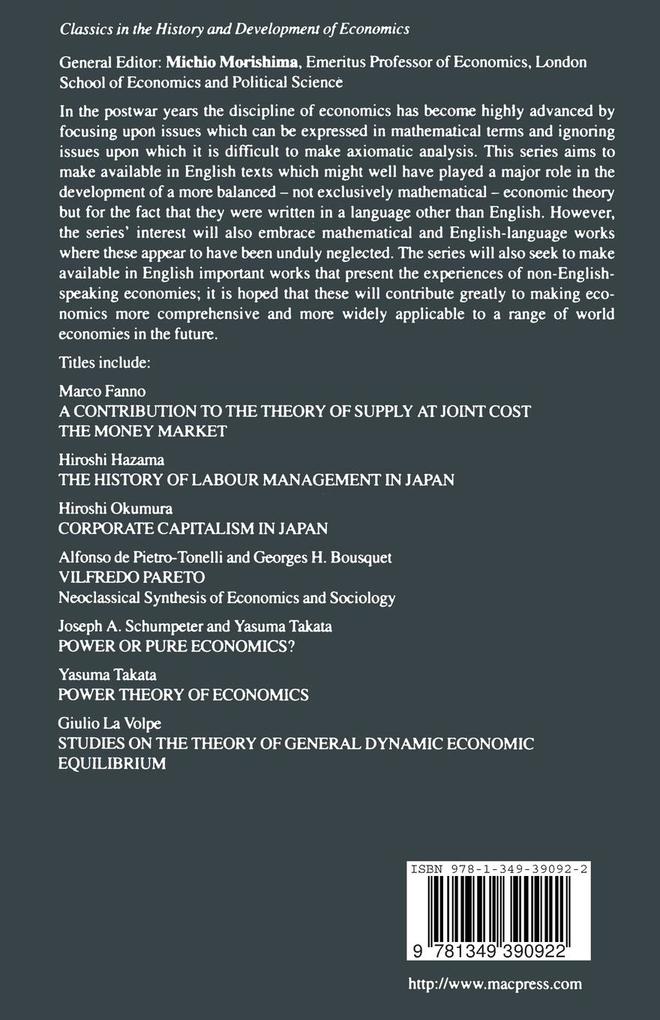
Zustellung: Mi, 09.07. - Fr, 11.07.
Versand in 4 Tagen
VersandkostenfreiBestellen & in Filiale abholen:
In characterising the Japanese way of business, Professor Okumura has made one of the most significant contributions to the study of economics. Following his study of the conversion of prewar zaibatsu to postwar groups of enterprises, he worked on the roll of comprehensive trading companies in these groups, the main banking system and the permanent employment system. However, he is very critical of this way of business, whereas those influenced by him are enthusiastic in its appreciation. This is the first English translation of his work.
Inhaltsverzeichnis
Preface General Editor's Foreword; M. Morishima Introduction PART I: WHAT IS CORPORATE CAPITALISM? The 'Companised' Society The Logic of Corporate Capitalism The 'Companism' System PART II: THE JAPANESE COMPANY The 'Corporatisation' of Shareownership Dividends and Share Prices Take-Overs PART III: MANAGERS Who Rules Japan? Managers and Shareholders Managers and Employees Representatives of the Company The Privilege and Position of Management PART IV: RELATIONS BETWEEN FIRMS Fixed Relations Mutual Control and Mutual Dependency Externalisation and Formation of Keiretsu Exclusionary Character Institutional Framework Index
Produktdetails
Erscheinungsdatum
01. Januar 2000
Sprache
englisch
Auflage
2000 edition
Seitenanzahl
165
Reihe
Classics in the History and Development of Economics
Autor/Autorin
H. Okumura
Verlag/Hersteller
Produktart
kartoniert
Abbildungen
LXI, 165 p.
Gewicht
295 g
Größe (L/B/H)
216/140/13 mm
ISBN
9781349390922
Entdecken Sie mehr
Bewertungen
0 Bewertungen
Es wurden noch keine Bewertungen abgegeben. Schreiben Sie die erste Bewertung zu "Corporate Capitslism in Japan" und helfen Sie damit anderen bei der Kaufentscheidung.










